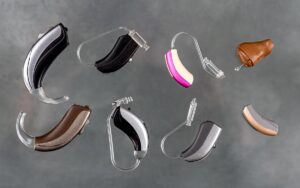Your workplace has decided to encourage teamwork and cooperation by opening up the office floor plan. However, you find yourself struggling in this new setup. Not because you miss the privacy of cubicle walls, but because the increased noise makes it difficult to follow conversations.
Even if mainstream hearing tests indicate perfectly normal hearing, the inability to hear conversations in loud settings is often an early sign of hearing loss. This indicates that having “normal” hearing doesn’t guarantee the ability to comprehend speech effectively.
The complexity of speech perception
Speech comprehension is a complex cognitive task that demands substantial brainpower. Optimal hearing abilities are necessary to distinguish voices in loud environments.
As hearing starts to decline, the brain faces difficulties in isolating and processing speech signals amidst competing sounds. Consequently, settings like bustling offices or crowded restaurants become mentally fatiguing.
Recognizing hearing loss when it’s in its early stages
Early signs of hearing loss manifest in various ways:
- When in noisy settings, conversations are difficult to make out.
- The brain has to work extra hard to comprehend speech causing increased mental tiredness.
- Distraction and decreased engagement in social interactions.
Hearing loss assessments
It can be especially hard to identify these kinds of challenges when standard hearing diagnostics seem to reveal normal hearing. Here are some tests being developed by scientists to identify hearing loss in its early stages:
- The Eye Test: A special set of glasses is used in this test. The movement and dilation of your pupils can be monitored with these glasses. If you’re concentrating a little harder than usual your pupils will behave in a specific way. But it may be a sign that you’re straining to hear if this happens in a loud setting.
- Monitoring Electrical Signals: In this test, a device tracks the electrical EEG signals sent by your ears to your brain. It will be a potent sign that you’re having some hearing trouble if these signals fluctuate in a particular way when you’re in a crowded location.
These tests, coupled with personal observations, aim to identify hearing problems at their emergent stages, facilitating early intervention.
The benefits of early detection
There are two important advantages to early detection.
- It offers clarity regarding challenges faced in environments like open offices, alleviating potential frustrations.
- Addressing hearing loss quickly prevents mental decline related to untreated hearing impairments.
If you’re experiencing difficulty following conversations in spite of “normal” hearing, consider seeking a professional evaluation.
Total mental function and auditory health will be improved by early diagnosis. Give us a call today and let us help you with any hearing loss you might have.
[blogcta]





